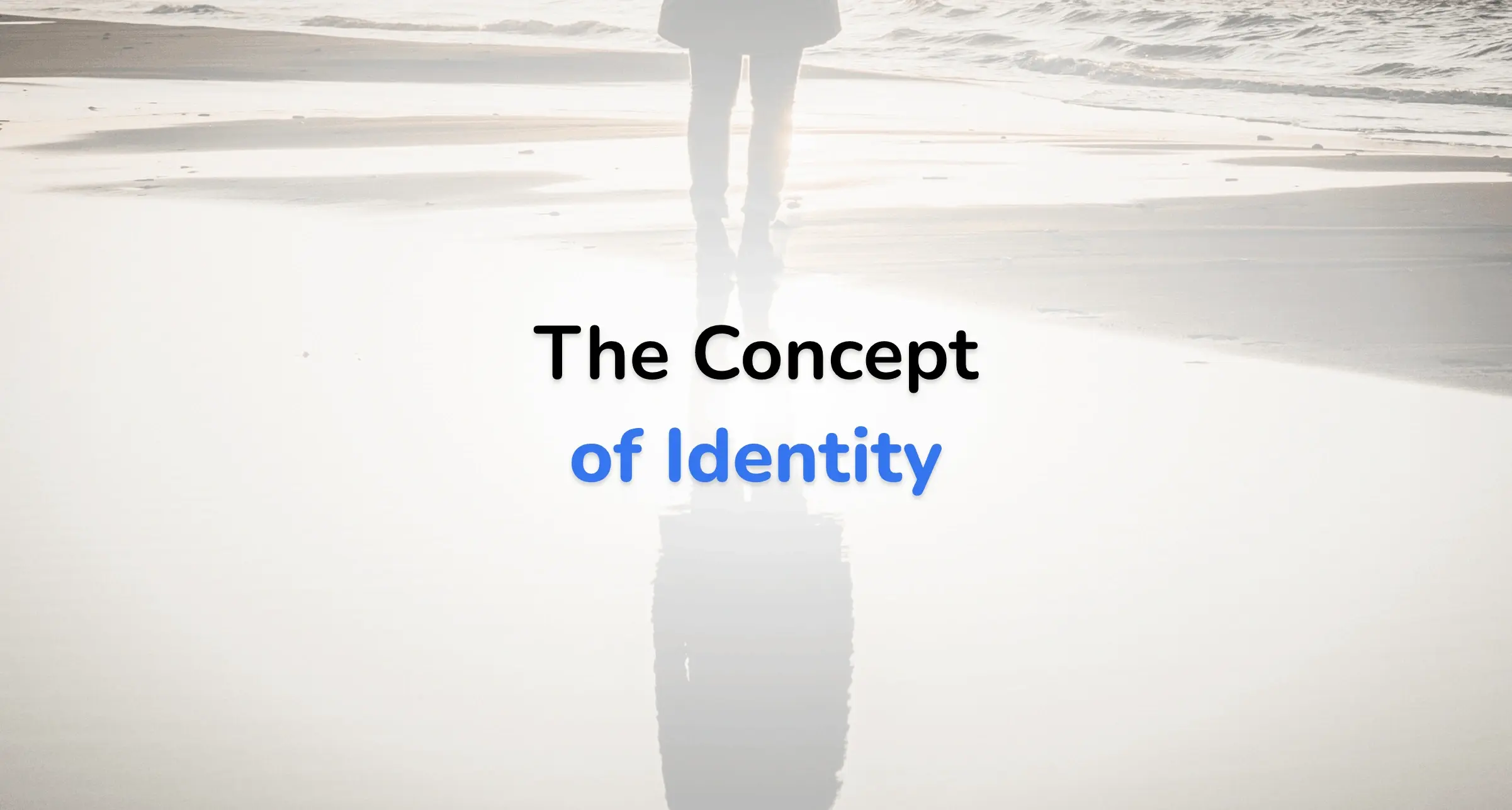
The Concept of Identity
July 23, 2020
Identity, Choice, and the Cultural Forces That Shape Us
You would be hard-pressed to find a person not familiar with the concept of identity. For an idea that has only been around a little over 100 years, this speaks volumes about its power. Of course, this is not to say that identity as a concept did not exist before, but its significance has changed drastically over the past decades. While it still refers to the compilation of our memories, experiences, relationships, and values that create our sense of self, the key difference today is in what it implies and how far its influence has extended.
Identity in Everyday Life
On an individual level, the way we create and represent ourselves has taken a central role in our lives. Our friendships, sex lives, and careers increasingly hinge on our ability to present and manage this personal image. Beyond the individual, there are entire industries that depend on creating, branding, and selling unique identities of themselves and their products. Going further still, identity has taken a central role in politics. Increasingly, elections depend on the meticulous work of teams of data analysts, marketers, and public relations consultants whose task is to create and sell the right image of a candidate. The key issue here is creation.
Living Through Surfaces
By now, we have embraced a sometimes disturbing but fundamental reality. We can only connect with one another through surfaces. The extraordinary success of platforms such as Facebook and Instagram, built on our demand for creating and connecting through artificial identities, is a clear symbol of how far we have come in accepting this condition.
While there is much to be said about a society organised in this way, there is also something undeniably liberating in the idea of consciously creating our own identity.
Indeed, flexibility and the ability to adapt and create our lives without restraints are among the most valued qualities in contemporary society. From this perspective, the freedom to choose who we are is not only liberating. It is a prerequisite for participating in and succeeding within a constantly changing social environment. This raises an important question. How far does this freedom really extend?
Choice and Psychological Identity
Much of the psychological literature on identity focuses on personal choice. Identity development is often described as the interaction between individual preferences and the surrounding environment. In this framework, emphasis is placed on the individual self confronting the outside world, with choices and experiences jointly shaping identity.
Within this view, limits on freedom are typically reduced to biological factors. Our genetic makeup, abilities, and skills define the range of possibilities we may realistically pursue.
However, there exists another form of restraint. It is less visible, but no less powerful.
Culture as a Hidden Constraint
This restraint lies in the boundaries that define which choices are worth considering in the first place. These boundaries are cultural.
To illustrate this, consider a common example. Becoming a firefighter is a frequent and sometimes all-consuming aspiration among young children. Parents rarely take this ambition seriously. This is not because it is impossible, but because they assume it will not last. Over time, children are expected to arrive at more sensible aspirations, which quietly replace earlier dreams.
The social processes behind this shift run much deeper than childhood fantasies. Much of adult life consists of a steady movement toward decisions that appear more reasonable within a given social context. Although individuals remain free to choose, these choices become increasingly predictable as they accumulate. Over time, they form visible patterns.
These patterns reflect the shape of society and its culture. They also define the limits of the identities we are likely to adopt.
Cultural Forces and Identity Formation
The emerging work of psychologist Carl Ratner is among the few attempts to systematically examine these hidden forces. His research seeks to explain human behaviour and identity within the context of modern society. His central premise is that individuals are shaped by cultural forces and institutions that define the framework within which choices are made.
From this perspective, personal identity is shaped not only from the bottom up through biology and individual experience, but also from the top down through political ideologies, economic systems, war, migration, technology, and religion.
Although these forces may seem obvious, there has been surprisingly little detailed investigation into how they shape everyday decisions and identities. Much of the existing work remains abstract and rarely engages with the complexities of contemporary culture.
Lessons from Simpler Societies
One way to grasp the scale of this influence is to examine how identity is shaped in societies with simpler social structures. In many hunter-gatherer communities, the psychological makeup of individuals is clearly shaped by shared beliefs, power relations, economic conditions, and technological limitations.
Where survival depends on cooperation and sharing, individuals tend to adopt egalitarian worldviews. Social roles often develop around this need. Women commonly take on caregiving, food preparation, and medicinal roles, while men engage in hunting, gathering, and other physically demanding tasks.
While there is significant variation and these roles are not always rigid, such societies provide clear examples of how identity is shaped by context. Importantly, individuals within these cultures rarely experience their choices as constrained. Their decisions feel free, even though they follow predictable cultural patterns.
Modern Society and Hidden Structure
When viewed from this perspective, it becomes difficult to deny that modern life is just as shaped by context as life in tribal societies. The difference lies in complexity. Contemporary social systems are vast and interconnected, which allows their influence to remain largely hidden.
As a result, the roots of identity in modern culture often become visible only during periods of major social change. These are moments when old systems collapse and new ones emerge.
The Historical Origins of Modern Identity
According to Ratner, the foundations of modern identity can be traced to nineteenth-century England and America, during the rise of industrial capitalism. Before this period, identity was organised around what we might now describe as character. Character was defined through moral standards such as duty, humility, sacrifice, work ethic, honour, and self-control. This framework suited small-scale, community-based economic systems.
With the industrial revolution, production became fragmented and traditional communities weakened. Gradually, character gave way to what we now call personality. Identity became centred within the individual rather than the community. Personality was increasingly defined by individual traits such as creativity, intelligence, and passion, rather than adherence to shared moral norms.
This shift was both a consequence of and a requirement for a new economic order. Entrepreneurial, specialised, profit-driven, and consumption-focused systems required a different kind of individual. The ideal identity became self-interested, confident, and oriented toward self-realisation and uniqueness.
A Contemporary Case Study
Ratner also points to recent changes in China as an example of identity transformation driven by economic reform. Since the 1980s, millions of people have experienced dramatic changes in work, mobility, and opportunity. These shifts have contributed to the emergence of a new self-image, particularly among rural youth.
Traditional Chinese identity emphasised collectivist values rooted in family, community, and work units. With labour market reforms and exposure to consumer advertising, these identities have increasingly been replaced by what has been described as the enterprising self. This identity prioritises calculation, proactivity, and self-discipline, often placing individual goals above collective obligations.
While such traits are widely celebrated in modern societies, their value is inseparable from the broader social and economic context in which they arise.
Seeing What Shapes Us
Cultural context does not usually restrict action through direct prohibition. Instead, it shapes what feels natural, desirable, and self-evident. Because these values are embedded in everyday life, they are rarely questioned.
Although Ratner’s work is still developing and far from complete, it remains significant in its attempt to connect culture, economics, political ideology, and psychology. In doing so, it invites a deeper examination of how much of identity is consciously chosen and how much is quietly inherited from the world around us.
